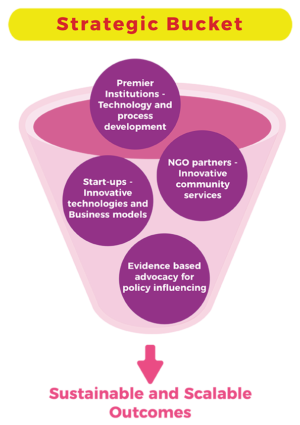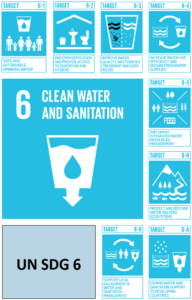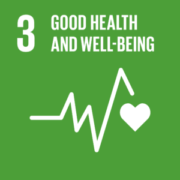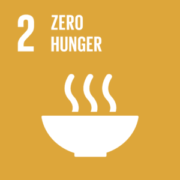Support premier Institutions for technology and process development to find innovative solutions for pressing problems in these domains
Support reputed NGO partners for innovative community services to reach the communities with innovative solutions and empower local communities, with technical, managerial and financial skills, to ensure adoption of these solutions with long term sustainability.
Support Startups with Innovative technologies and Business Models in our domains to drive scalability across larger geographies and maximize the social impact.
Evidence based advocacy for policy influencing and wider support and collaboration among industry, public and other stakeholders, based on results of above initiatives to mainstream innovations and best practices developed.




